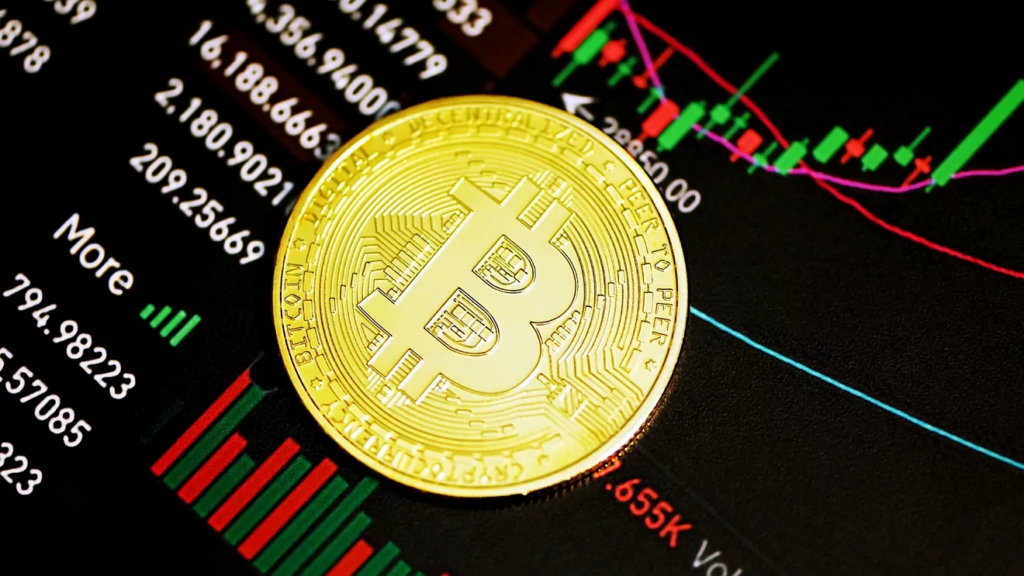Join Our Telegram Group
In recent years, Bitcoin has gained significant attention as a decentralized digital currency. But how does Bitcoin work exactly? In this article, we will go into the inner workings of Bitcoin and explore its benefits, risks, and potential as an investment. So, let’s dive in and unravel the mysteries of this revolutionary technology.
Understanding the Bitcoin Network
Bitcoin operates through a peer-to-peer network, eliminating the need for intermediaries such as banks or financial institutions. This decentralized network enables users to send and receive bitcoins directly, securely, and anonymously. Transactions are verified by network nodes using cryptography, and the information is recorded in a public ledger known as the blockchain.
Sending and Receiving Bitcoins
To send bitcoins, a user creates a transaction, specifying the recipient’s Bitcoin address and the amount to be transferred. This transaction is then broadcasted to the Bitcoin network. Network nodes, known as miners, validate the transaction by solving complex mathematical problems. Once the transaction is verified, it is added to a block in the blockchain.
The Blockchain: A Distributed Ledger
The blockchain is a public, distributed ledger that contains a record of all Bitcoin transactions. Each block in the blockchain contains a set of transactions, along with a unique identifier called a hash. These blocks are linked together using cryptographic hashes, forming a chain of blocks. This decentralized nature ensures transparency and security, as any attempt to modify a block would require changing all subsequent blocks.
Benefits of Bitcoin
Bitcoin offers several potential benefits that make it an attractive alternative to traditional currencies and payment systems. Here are some of the key advantages:
Decentralization
Bitcoin operates outside the control of governments and financial institutions. It is not subject to the regulations and restrictions that often affect traditional currencies. This decentralization gives users more control over their funds and reduces the risk of censorship or seizure.
Lower Transaction Costs
Compared to traditional bank transfers or international remittances, Bitcoin transactions are generally much cheaper. The absence of intermediaries and the streamlined verification process contribute to lower transaction fees, making Bitcoin an appealing option for cross-border payments.
Anonymity and Privacy
Bitcoin offers a certain level of anonymity, as transactions are not directly linked to personal identities. While the transactions themselves are public, the users’ identities remain pseudonymous. This anonymity can be particularly useful for individuals who value privacy or are in regions with restricted financial freedom.
Risks Associated with Bitcoin
While Bitcoin has its advantages, it is essential to be aware of the potential risks involved. Here are some significant risks associated with Bitcoin:
Volatility
The price of Bitcoin is notoriously volatile and can fluctuate dramatically in short periods. This volatility introduces investment risks, as the value of Bitcoin can experience rapid and substantial changes. It is crucial to consider one’s risk tolerance and carefully monitor the market before investing in Bitcoin.
Security Concerns
Bitcoin’s security heavily relies on the cryptographic algorithms and protocols that underpin it. However, there is always a risk of fraud or hacking. Cybercriminals may attempt to compromise Bitcoin wallets or exploit vulnerabilities in the network. It is essential to follow best practices for securing one’s Bitcoin assets and stay vigilant against potential threats.
Limited Acceptance
While Bitcoin has gained popularity, it is still not widely accepted as a form of payment. The limited acceptance can restrict its usefulness in day-to-day transactions. However, with the growing adoption of cryptocurrencies, more businesses are beginning to embrace Bitcoin as a payment option.
Is Bitcoin a Good Investment?
Determining whether Bitcoin is a good investment depends on individual perspectives and risk appetite. Some view Bitcoin as a groundbreaking technology that could revolutionize the financial landscape. They believe in its potential for long-term growth and consider it a hedge against inflation. Others caution against the speculative nature of Bitcoin and see it as a bubble that may burst. As with any investment, thorough research and careful consideration of personal financial goals are crucial.
Conclusion
In conclusion, Bitcoin operates through a decentralized peer-to-peer network and relies on cryptography and the blockchain to facilitate secure and transparent transactions. While Bitcoin offers benefits such as decentralization, lower transaction costs, and anonymity, it also carries risks such as volatility, security concerns, and limited acceptance. Ultimately, the decision to invest in Bitcoin or launch a Bitcoin trading exchange requires a thorough evaluation of the associated benefits and risks.
FAQs:
- Q: Can I use Bitcoin to make anonymous payments? A: Yes, Bitcoin can be used to make anonymous payments as transactions are pseudonymous. However, it is essential to remember that Bitcoin transactions are recorded on a public ledger, and sophisticated analysis techniques can sometimes link transactions to individuals.
- Q: Why is Bitcoin’s price so volatile? A: Bitcoin’s price is highly volatile due to factors such as market speculation, regulatory developments, macroeconomic conditions, and investor sentiment. The relatively small size of the Bitcoin market also contributes to its price volatility.
- Q: How secure is Bitcoin? A: Bitcoin relies on advanced cryptographic algorithms and protocols to ensure security. While the underlying technology is robust, there have been instances of security breaches, fraud, and hacking. It is crucial to adopt best security practices and utilize reputable wallet and exchange services.
- Q: Is Bitcoin legal? A: The legal status of Bitcoin varies across countries. While some countries have embraced Bitcoin and established regulatory frameworks, others have imposed restrictions or outright bans. It is important to familiarize yourself with the regulations specific to your jurisdiction.
- Q: Can I mine Bitcoin? A: Yes, Bitcoin can be mined by individuals using specialized computer hardware to solve complex mathematical problems. However, mining has become increasingly competitive and resource-intensive, requiring significant investment in equipment and electricity.

